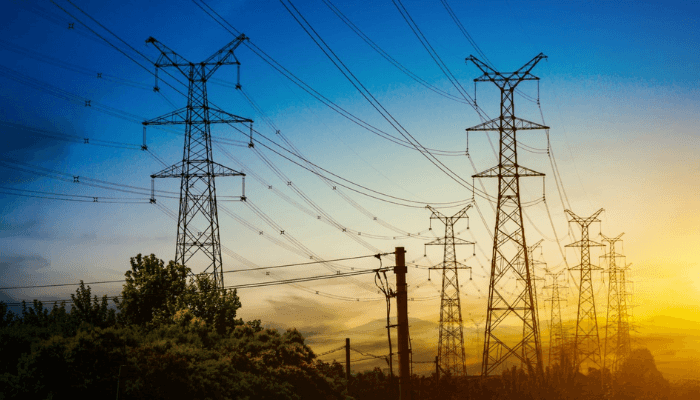Nigerians are facing yet another surge in blackouts, sparking renewed concerns about the Federal Government’s (FG) ability to tackle the nation’s long-standing electricity woes.
Nigeria can produce around 13 GW of electricity but only delivers about 4 GW to the grid due to constraints, which means most of its population is solidly dependent on home generators for their power supply.
A privatisation drive that saw 15 power generators move from state into private hands in 2013 was expected to solve the problem but the transmission lines remained state-owned and no meaningful investments were made in expanding the network.
Read also: Only 13 million Nigerians registered as electricity customers TCN
So, while power generation increased, bringing the electricity to end consumers was hampered by the size of the grid.
Some sections of the populace have begun to wonder if Adelabu Adebayo, Nigeria’s current minister of power, an accountant and graduate of Harvard Business School is not overwhelmed by the scale of the challenge as recent blackouts, some lasting days, have thrown homes and businesses into disarray, fueling public frustration.
Experts said they were yet to have confidence in the capacity of Adelabu and the Bola Tinubu government to give the sector the leap it requires.
They insisted that leadership and political considerations were the primary factors worsening the Nigerian Electricity Supply Industry (NESI).
Aisha Mohammed, an energy analyst at the Lagos-based Center for Development Studies said leadership plays a key role in instilling confidence in a sector and setting policies that show direction for the industry that would pave the way for investments in the sector.
“Our present political leadership has not been able to instill any kind of confidence or show direction for the power Sector. Those asking for the sack or resignation of the Power Minister are also in line, because the minister has not effectively set any policy tone or directive to boost investors’ confidence,” Mohammed said.
She noted that the statements around sales of gas in naira are among the innocuous comments made by the minister, adding that germane issues like the $1.2 million debt to gas suppliers, which has directly led to unavailability of gas to GenCos, and the World Bank loan for 1.2 million metres that effectively excluded local metre manufacturers, were not being looked at decisively.
“With many government agencies owing electricity bills, the unsustainable subsidy on electricity tariff would only worsen the ever-increasing market shortfall. So, if you ask me if leadership is the primary issue affecting the power sector, my answer would be yes.
“The minister should immediately get into talks with gas suppliers and seek how to pay these debts. The leadership should work with the regulators, as they should normally do, to resolve the issue of subsidy. The minister should also speak less without policy papers and stop misleading the sector. “He promised a policy paper since December. I think he should focus on this, or at the minimum, go back to the Power Sector Recovery Programme that Babatunde Fashola did, review it in line with the present realities and update it for direction,” Mohammed added.
Read also: Elumelu urges privatization of Nigeria electricity transmission lines
Tony Elumelu, chairman of Heirs Energies, who controls 15 percent of the country’s electricity market called for an overhaul of the grid to solve long-running problems with supply.
Tony Elumelu, who controls several power sector companies, told Bloomberg in an interview that Nigeria needs more transmission lines and the electricity market needs more liquidity in order to reverse years of insufficient supply that is hampering economic growth.
“As a country, we can’t produce well enough in spite of our natural resources. The reason is lack of electricity,” Elumelu said.
“Even where you generate electricity, the grid cannot take it, so it’s a problem for us,” Elumelu explained to Bloomberg. “I am advocating that let us privatize transmission lines.”
The businessman, whose company Transcorp Power Ltd. went public this week with a valuation of $1.2 billion, also suggested that the government attracts investors to develop Nigeria’s substantial natural gas reserves and sell them to power generators.

